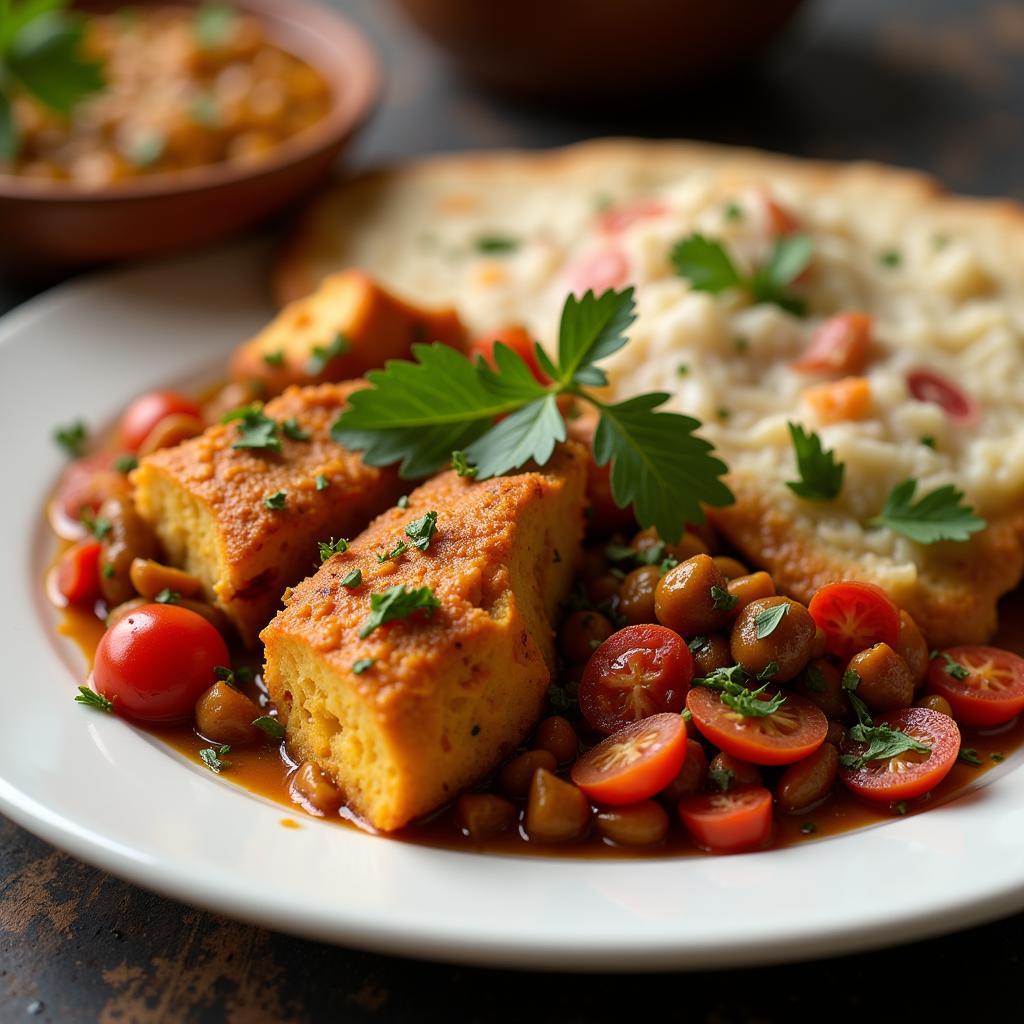The Complete Guide to African Gray Food: What You Need to Know
African gray parrots are intelligent, social birds that bring joy to countless homes with their charming personalities and impressive ability to mimic sounds. As a responsible owner, providing a nutritious and diverse diet is crucial for their well-being and longevity. Understanding what constitutes a healthy “African Gray Food” plan is essential. This guide delves deep into the dietary needs of these fascinating creatures.
Deciphering the African Gray Diet: More than Just Seeds
While seeds might seem like the obvious choice, solely relying on them can lead to nutritional deficiencies. Think of it as feeding your parrot fast food every day – it might fill them up, but lacks essential vitamins and minerals. A well-balanced African gray food list encompasses a variety of fresh fruits, vegetables, healthy fats, and high-quality formulated pellets.
Pellets: The Cornerstone of African Gray Food
High-quality formulated pellets should make up around 60-70% of your parrot’s daily intake. These pellets are specifically designed to provide a balanced blend of vitamins, minerals, and other nutrients essential for your African gray’s health. Look for brands with minimal additives and fillers, opting for those with fruits, vegetables, and grains listed as the primary ingredients.
Fruits and Vegetables: Nature’s Bounty
Fruits and vegetables should constitute approximately 20-30% of your African Gray’s diet. These vibrant additions not only provide essential vitamins and antioxidants but also add variety and interest to their meals. Offer a colorful mix of dark leafy greens like kale and spinach, brightly colored vegetables such as carrots, bell peppers, and broccoli, and a variety of fruits like apples, bananas, and berries.
Healthy Fats: Essential for Brainpower
Don’t forget to incorporate healthy fats into their diet. Nuts, such as almonds, walnuts, and pecans, are excellent sources of essential fatty acids, crucial for brain function and overall health. However, offer these in moderation due to their high-fat content. Seeds, like flaxseeds and chia seeds, are also beneficial additions in small quantities.
Toxic Foods to Avoid: Keeping Your African Gray Safe
While it’s tempting to share your snacks with your feathered friend, remember that certain foods can be toxic to African grays. Avocado, chocolate, caffeine, alcohol, and salty or sugary foods are a big no-no. Additionally, avoid feeding them any part of the African sausage tree as it is highly toxic to birds.
Water: The Elixir of Life
Always ensure your African gray has access to fresh, clean water. Change the water at least twice daily to prevent bacterial growth and encourage healthy hydration.
Enrichment Through Food: Stimulating Foraging Instincts
African grays are intelligent creatures that thrive on mental stimulation. Engage their natural foraging instincts by offering food in various ways. Use puzzle feeders, foraging toys, or hide food in different parts of their cage to encourage them to work for their meals.
What Does an African Gray Eat in a Day?
A typical daily diet for an African gray parrot might look like this:
- Morning: 1/4 cup of high-quality pellets, 1/4 cup of chopped fresh fruits (e.g., berries, apple slices)
- Afternoon: 1/4 cup of chopped vegetables (e.g., broccoli florets, carrot sticks), a few almonds or walnuts
- Evening: 1/4 cup of high-quality pellets
Remember to adjust portions based on your parrot’s individual needs, activity level, and metabolism. Consulting with an avian veterinarian for personalized dietary recommendations is always a good idea.
Conclusion: Nourishing Your Feathered Companion
Providing a balanced and nutritious diet is one of the most important aspects of responsible African gray ownership. By understanding their dietary requirements and offering a diverse range of healthy options, you can contribute significantly to their overall health, happiness, and longevity. Remember, a well-fed African gray is a happy and thriving one!
FAQ:
1. Can African grays eat peanuts?
Yes, African grays can eat peanuts in moderation. However, ensure they are unsalted and unshelled.
2. How often should I offer fresh food?
Ideally, provide fresh fruits, vegetables, and other treats daily to keep your parrot’s diet interesting and nutritious.
3. My African gray is a picky eater. What can I do?
Try offering new foods in different ways, such as chopped, grated, or mixed with their favorite treats. Patience and persistence are key!
4. Can African grays eat meat?
While African grays primarily thrive on a plant-based diet, they can occasionally consume small amounts of cooked lean meat as a source of protein.
5. Are there any specific brands of pellets you recommend?
Consult with your avian veterinarian for recommendations on reputable pellet brands tailored to your African gray’s specific needs.
You might also be interested in:
- The Difference Between African and Asian Elephants
- The Fascinating World of African Bustards
- Discover the Elusive African Golden Wolf
Need help? Contact us:
Phone: +255768904061
Email: kaka.mag@gmail.com
Address: Mbarali DC Mawindi, Kangaga, Tanzania.
We have a 24/7 customer support team ready to assist you.
